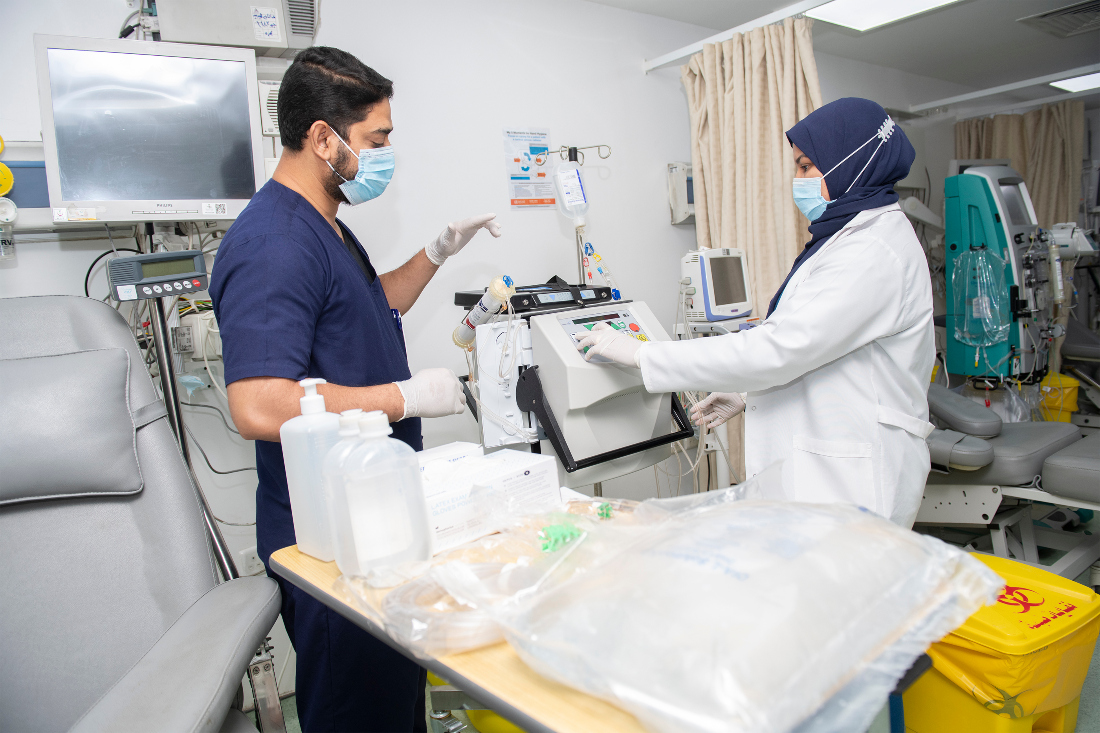MINA: As part of its efforts to provide medical care for this year’s pilgrims, the Saudi Ministry of Health is providing dialysis services for kidney patients in Makkah and Madinah.
According to the ministry, 57 doctors and 228 nurses are working on 251 dialysis units, which serves over 1,000 patients daily in the two cities.
There is centralized oversight of the kidney centers at hospitals in Makkah, Mina, Muzdalifah, and Arafat. Pilgrims have to be registered before receiving treatment.
This year, the ministry added 10 mobile dialysis units, which can be used by paramedics and hospitals where central machines are unavailable. Mobile units, the ministry said, can also be transported to the camps of pilgrims if needed.
In terms of general health provision, the ministry has stated that between May 31 and July 3, medical workers performed five open-heart surgeries, 66 cardiac catheterizations, 182 dialysis sessions, two endoscopic procedures, and 95 surgeries at the holy sites.
Dr. Mohammed Al-Abd Al-Aly, spokesperson of the ministry, on Thursday at a press conference in Mina, urged pilgrims to wear face masks to avoid respiratory infections, and to use umbrellas to protect them from the intense heat.

Saudi Ministry of Health is providing a dialysis service for patients with kidney failure, serving up to 1,000 patients round the clock in Makkah and Madinah. (Supplied)
He said pilgrims can contact the health ministry through various channels. “We would like to urge all pilgrims to not hesitate to call (937) for any remarks, comments, consultations, or any other medical assistance. On a daily basis, we are ready to receive their inquiries in seven languages, in addition to sign language,” he said.
The ministry has expanded its 937 call center for this year’s Hajj, focusing on providing quicker responses to health inquiries, addressing feedback on services provided, and identifying missing pilgrims who were admitted to medical facilities at the holy sites.
The center offers these services in seven languages — Arabic, English, Urdu, French, Indonesian, Turkish, and Farsi. It also receives inquiries and provides assistance through other channels, including WhatsApp, Twitter, e-mail, and the ISHARA application for persons with hearing difficulties.
Al-Abd Al-Aly said that 25,000 health workers are providing services in Makkah and Madinah, adding that 23 hospitals with 4,654 beds are available to pilgrims.
He also said more than 53,000 pilgrims have so far benefited from the country’s health services.
















